Join the discussion below
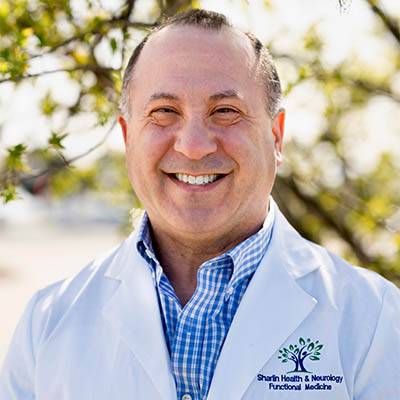
Kenneth Sharlin, MD, MPH, IFMCP
Kenneth Sharlin, MD, MPH, IFMCP, is a board-certified neurologist, consultant, functional medicine practitioner, Assistant Clinical Professor, researcher, author, and speaker. His medical degrees are from Emory University, The University of Virginia, and Vanderbilt University. His functional medicine certification is through The Institute for Functional Medicine. He is author of the... Read More
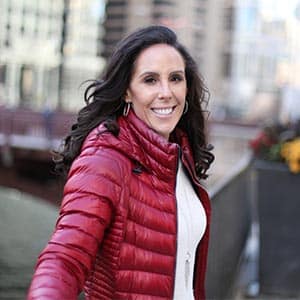
Dr. Jill is Your Functional Medicine Expert® She uses functional medicine to help you find the answers to the cause of your illness and the nutritional and biochemical imbalances that may be making you feel ill. Functional medicine is personalized medicine that deals with root cause of disease instead of... Read More
- Realize the healing power of sharing your personal story
- Understand the difference between a fighting posture and a healing posture
- Learn the integration of physical and spiritual self-care
- This video is part of The Parkinson’s Solutions Summit
Related Topics
Autoimmunity, Birth Environment, Bucket Metaphor, Cancer, Chemicals, Chronic Illness, Clean Air, Clean Food, Clean Water, Detective, Detoxification, Dormant Viruses, Environment, Epigenetics, Functional Medicine, Functional Medicine Providers, Genes, Healing Journey, Healing Role, History, Holistic Medicine, Immune Inflammation, Immune System, Infectious Burden, Medicine, Narrative, Neurodegenerative Diseases, Parkinsons Disease, Pfoa, Storytelling, Symptoms, Toxic Load, Toxic Soup, Transgenerational Epigenetics, Water SuppliesKenneth Sharlin, MD
Hello, this is Dr. Ken Sharlin. You are viewing the Parkinson’s Solutions Summit. Welcome. I have the privilege of visiting today with one of our country’s top functional medicine doctors, Dr. Jill Carnahan, who is located in the Boulder, Colorado, area with her brick-and-mortar Flatiron functional medicine. I am going to let Dr. Jill tell you about herself, but I do want to share that she and I met several years ago. She was one of the very first functional medicine doctors that I had the privilege of meeting and chatting with. I feel that, in some respects, our journey has paralleled one another. I recently had the opportunity to read her new book, Unexpected Finding Resilience through Functional Medicine. I highly recommend it and will be talking about this book throughout the interview today and how it is so important to those affected by Parkinson’s disease. Without further ado, Dr. Jill Carnahan, welcome to the Parkinson’s Life Summit.
Jill Carnahan, MD
Thank you, Dr. Sharlin. It’s an honor to be here with you, and I love what you are doing for the field of medicine in Neurology.
Kenneth Sharlin, MD
Thank you so much, Dr. Jill. I love this book. I read it over the weekend, I should say. It is Sunday today. It was an opportunity to kick back with a good book. One of the things that is so important, I think, about this book and a great launching point for our interview is that there are many books out there in the functional and holistic medicine arena, and many of them are great. I could name lots of really good ones. Many of them, in most respects, are prescriptive. I would say that while your book in some respects is prescriptive, it is telling a story. Through the story, through your personal experience with illness, we learn how to harness the powers of healing. It seems somewhat less direct and more narrative-oriented. I must say, as someone with a background in English, literature, writing, and so forth, and as a deep believer in really telling stories as medicine, this book is very important. It is a very important read for anyone interested in the healing journey.
Jill Carnahan, MD
Dr. Sharlin, you are speaking to my heart. Thank you for those kind words and for really seeing what it was supposed to be. I remember years ago, when I first talked to the publisher, they said, Unless you are Michelle Obama or Ebony Brown, you cannot write a memoir. Truly, I realized that at the heart of medicine, we are all telling stories. When you think about the Great Ancestors, it is all about story and connective tissue. Even as a physician, the first thing we learn is to take a history, right where you have learned to take the patient’s story. Now, sometimes, with the busyness of medicine and the bureaucracy, we lose that story.
But at the heart of healing and connecting to other humans, whether it is physician to patient or just friend to friend, mother to child, or human to human, it is really about stories because stories are the way that we understand each other’s lives. I realized in writing the book that I wanted to blend the how-to, but I did not want it to just be a how-to. Thank you for mentioning that, because the story drives that. What I try to do is tell my story, which is about overcoming multiple different illnesses, including cancer, autoimmunity, mold-related illnesses, and all kinds of other things. But in that journey, take those lessons that are universal to all of us and share them with the reader so that the reader might see themselves as a mirror. It would be about the reader and not even about me.
Kenneth Sharlin, MD
Yes, let us walk through functional medicine and weave into our discussion your story and how this is important to folks who are suffering from Parkinson’s disease. One of the things that I think we all do when we first meet our new patients as functional medicine providers is we take a history. But that history is very different from what you and I were trained to do as physicians in medical school, which is to focus on what the patient calls, the chief complaint. In Parkinson’s, that might mean, I am falling. I have tremors and am shuffling my gait. You say, Well, tell me, when did that start? How did it progress? What makes it better? What makes it worse? But the history, if you will, of functional medicine is very different. Would you agree?
Jill Carnahan, MD
Absolutely. Yes. With functional medicine, what we get to do is be great detectives. Most of the reasons why many of us went into medicine in the first place were to become healers and also to really connect on that level with a patient, understand them, and then help them get to their goals. Health related. Now, again, we both have conventional medical training and a wonderful background. We’ve got a great science background and a great background in diagnostics, diagnostic stakes, and differential diagnosis. All this, I feel, is critical to the practice of a great practitioner. But what we have done with functional medicine is go a lot deeper into that: where are you born, what environment were you born, and what were your parents? Not just the family of origin, but the environment. Did you live next to a chemical factory? Did your father do firearms and have lead in the house, or are there all these different questions that contribute to neurodegenerative diseases like Parkinson’s and are critical even from birth?
I talk in the book about 2001, which is the same year I was diagnosed with breast cancer over 20 years ago. The cord blood of babies in Canada was tested and found to have 200 chemicals at birth. This was over 20 years ago. Who knows how much it is now? But what that told us was that babies were being born with the disadvantage of a toxic load on their system from birth, from the womb, which should be a sterile, relatively healthy, nontoxic home for them before they are born. all this to say those kinds of things, where were you born? What was your mother’s health like? What was your father’s health like? Where did you live? Where did you grow up? Even the relationships of your childhood, your family systems, and how did your parents treat you? Were there any alcoholics in the family? I could go on and on, but all of those things end up playing into the trajectory that we have in our lifetime. Many times, those insults that happened at two, 10, 20, or 30 will start a process of abnormal gut microbiome or an abnormal autoimmune process that later manifests as cancer, autoimmunity, or neurodegenerative diseases.
Kenneth Sharlin, MD
That is right. We sometimes even start with information about your broader family before you are born, because certain things can set you up even at the time of birth. We refer to, we use the term epigenetics, and we refer to the term transgenerational epigenetics, meaning the classic one that is always taught in functional medicine is that women who survived the famine following World War Two in the Netherlands were more likely to have children who were obese and diabetic. But that is just a commonly cited example. We almost set up a little bit at the time of birth. But we need to remind our patients that while genes and even epigenetics load that gun, it is the environment that pulls the trigger. It is these events in our lives. Dr. Jill said, Hey, I grew up on a farm; I was exposed to chemicals, and there was possibly certainly a relationship for her between that and breast cancer. We can think about similar parallels with Parkinson’s disease.
Jill Carnahan, MD
Yes, at the root, I feel functional medicine; if we try to, there is no way to simplify everything. But when I am looking at a complex chronic illness like Parkinson’s, it is a very good example of a lot of the different neurodegenerative things that we are seeing now. It is on the rise, as you well know, often in functional medicine, there is an interplay between toxic load and infectious burden. Then, at the heart, those two things combine to create immune inflammation and dysfunction. Often, those processes are at the root of the things that we see manifest as autoimmunity, cancer, and neurodegenerative diseases like Parkinson’s. When we think of it that way, we can think of the toxic soup we are all swimming in. This is the hidden elephant in the room, and it is just the chemicals that are being put into our environment every day.
I mentioned the cord blood of babies 20 years ago, but things like PFOA, which are things like Teflon and Gore-Tex waterproof materials, used to not be in the water supplies. Last summer, California water systems were checked, and every single one of them they checked had levels that were above the limit threshold of PFOAs. Now, the sad thing about people is that they are probably fluorinated compounds. These are forever chemicals. Scientists cannot even calculate the half-life, which means they are going to be around for my generation, in generations past, in very many years, and you can filter them out of your water. But unless we are thinking as you are listening to this summer and maybe your friend or your family member, your parents, or yourself are dealing with neurodegeneration, you have to be thinking about toxicology and what you can do about it. We can talk about solutions today, too, because there aren’t any absolute things we can do.
But you need to be thinking about clean air, clean water, and clean food. Some of the real basic stuff that we input into our system, and even before we take a bunch of expensive supplements or things, we need to start with the very basics. Because of that toxic load, we can think about it as we are all born with the ability to detox, and it is almost like we have a bucket, and as our 2030s go on, we start to load up that bucket, and depending on our genetics and our ability to detoxify, some of us, like myself, got cancer at age 25, so my bucket got full very early. When that water spills over the top, as a metaphor goes, you start to manifest diseases or symptoms.
Part of our role as a function of us and doctors to identify what is in that load in the body, in the tissues that we can decrease, and how that plays into infectious burden is that often we have old things; we get chickenpox at five and it’s dormant, but then we get shingles at 80 after surgery and lack of sleep or some stressor of the life or Epstein-Barr dormant virus. We now have large studies that show connections to multiple sclerosis, so these old viruses can pop up and start to wreak havoc when the immune system is not under control. That toxic load weakens the immune system. These are some of the ways that those two things play. When they play, the immune system can get angry and either underreact and become a poor defense against infections that are lying dormant, or it can become overactive and create cytokines and do damage to the body and the nervous system in the brain.
Kenneth Sharlin, MD
There is an accumulation—we call them triggers sometimes—of inflammatory insults, some of which we and our bodies can deal with, some of which are cumulative until something happens, until we reach that tipping point, sometimes called the Allostatic overload. That is the term we use at that tipping point. If you have breast cancer, you have Parkinson’s disease. I am curious, Dr. Jill, for you at that moment, and I think you were a third-year student in medical school to be told you have breast cancer. How did that change your perspective on things? How did that impact your way of thinking about your identity, who you were, and where you were going? I think this is so important when our patients hear about chronic disease and how they process that information.
Jill Carnahan, MD
Yes, so I will give you just a tiny backstory. I grew up on a farm in central Illinois. One of five children. My mother was a retired nurse who raised the family. We grew up in a beautiful, idyllic place. It could have been the Norman Rockwell family, a wonderful family, all supportive. My parents have been married for over 50 years, an incredibly loving, supportive family, and siblings that we bickered, but a good family. We had a half-acre garden. We had tons of fresh-grown produce, sweet corn, and you name it. so many good principles for healthy living. However, there were chemicals, organic phosphates, pesticides, and other things on the farm that had endocrine-disrupting effects, which are hormone effects on the body.
As a young woman myself, if she was exposed to that and had poor detoxification, her bucket would get full. For me, at 25, in my third year of medical school, I found a lump in my left breast. I did not think anything of it. I was quite healthy or so I thought. But after a week or so of the mammogram, ultrasound, and biopsy, all the findings were suspicious. I will never forget the day that the surgical oncologist called me, she was a friend because, as a medical student, your teachers are the faculty, so she was someone known as a faculty person. It was not a stranger. She called me, and she said, Jill, I do not know how to tell you this, but you have aggressive breast cancer. We all remember. If you are listening, I know if you have had any health issues, you probably remember where you are sitting and the color of the wall. You will never forget those moments when your life shifts.
For me, I will never forget being in my apartment in Chicago in a green chair. I will never forget that moment because my life changed and I did not think I could grapple with it. At that moment, it is really hard to even comprehend because, in your twenties, especially, you think you are invincible. I had been what I thought was quite healthy. But what happened was that I always knew I was a healer, and I knew I wanted to do something to help people understand and be healthy. Because I grew up with the influences of a nurse, and I even went to a chiropractor as a young person. I was open-minded to other types of healing besides just conventional medicine. Yet I feel that our system right now, the best-reimbursed system in the United States, is allopathic medicine. I wanted to learn that system and understand great clinical skills.
But having been diagnosed with breast cancer, I still had this idea that, well, maybe there were other ways to heal. What happened? That was an incredibly aggressive tumor, as it would be in a 25-year-old. When young people get cancer, it’s usually incredibly aggressive. It’s very different from breast cancer at 65 or 70. I had a very aggressive protocol. I had three drugs of chemotherapy, which nearly killed me; I lost all my hair; all of that; all of the effects of the drugs; surgery; and radiation. Everything they could throw at me, they did. It destroyed my gut. Six months after I was through that, I was diagnosed with Crohn’s disease, and there is a connection there because chemotherapy creates more permeability in the gut. I had another genetic predisposition towards Crohn’s, which means I reacted abnormally aggressively to my normal microbiome. As we had permeability in the cells that line the leakage of the contents into the bloodstream, my body created a bad immune response, and then the outcome was Crohn’s.
Although, to say the least, your question was, How did it change my perspective? I knew I wanted to be a healer. I knew I wanted to do something more holistic. I did not even know the term functional medicine. Then. However, when I went through that, what I saw were models of physicians that were completely stoic, cut off, and wore a mask objective as taught in medical school, and I saw one or two doctors that gave their heart and soul set with me, and they embodied the medicine I wanted to practice. These were even conventional documents. But there were a few who listened and heard me.
In particular, with my radiation, I did a very experimental type of therapy. He had a trial going for 50- to 60-year-old low-risk women. I was not in that category, and we went to his office. He spent 2 hours with me and my ex-husband, and I begged and pleaded with him to say, Would you please take me on? By the end, we were all in tears. He had listened, he said, with a compassionate heart, put his study statistics aside, and said yes. I feel he was part of saving my life. I remember how I will never forget Dr. Sharlin looking at him, seeing him, and saying, That is the doctor that I want to be. I want to be that person who is against all odds, listening to the patient, and maybe thinking outside the box. just because of their standard of care. If I could do something slightly different to keep this patient safe, I am going to be that doctor.
Kenneth Sharlin, MD
Wow. Listening is such a huge part of the healing journey for patients. very often, and I am sure you experienced this as well. We get told we are functional doctors, as you are the first doctor who has listened to me so important. You did use conventional treatments as well. I share that in part because one of the things that I see in my clinic with our Parkinson’s patients and people that come to me from all over the country is some from outside the country. Because I have that toolbox that includes both functional medicine and conventional neurology, I have board-certified neurologists, and they say, Heal me, but do not use medicine. Of course, we do not yet have what we would call disease-modifying therapy for Parkinson’s. Hopefully, one day, we will.
There are several medicines out there that are used to treat Parkinson’s; most of them, really all of them, are for symptomatic improvement of Parkinson’s. But where I am going with this is that you have to remember that with Parkinson’s disease, by the time the diagnosis is made, it is said that in general, somewhere between 50 and 80% of dopamine-producing cells are already gone. If that person is presenting with falling, shuffling gait, or just overall rigidity, slowness of movement, absolutely There are things that we are going to do that are not the traditional pills for the ill. On the other hand, if we can utilize some of the benefits of dopamine therapy, it also makes it possible to do the other things that are needed for that healing journey as well. Where I am going with this by analogy is that I am hearing that they used a more integrative approach and that it is perfectly okay to combine the tools of traditional medicine where they serve you, as well as, of course, bring in the rest of the equation.
Jill Carnahan, MD
I love that you are talking about that because we sometimes see patients that have come in. Same with my office. There, I do not want any conventional drugs or any conventional therapy, but you and I, in any functional doctor, are worth their weight. Our toolbox is a good foundation for great medicine. Having great diagnostic skills is what I want to be. I want to be a great scientist first. I want to be a great clinician first. Those tools are drugs and surgery, and there is a perfectly appropriate place for those. However, what we have is this expanded toolbox, and I can think about my breast cancer journey because I had very conventional, aggressive therapy. I want to mention that this is important because oftentimes your listeners will be facing a decision right now.
They are faced with cancer, neurodegeneration, or some significant illness, probably neurodegenerative, because they are here and they are trying to decide what to do, and they are maybe feeling pressure from one doctor and then options from another doctor, and maybe their families are telling them a different thing. I want to encourage you to do what I did with my breast cancer. I learned very early that you take all the data that you can compile, and then you go down to your heart space and weigh in on what is the right thing. You might know here, but you also want to bring in that heart space because your body often knows your intuition has a sense that this doesn’t feel right. Again, as long as you have the science, both the left brain and the right brain, the intuition, and that analytical brain, you can make a decision. What I did with my cancer was I chose to do the therapy, and I knew it had the potential to cause lifelong immune-modulating issues. I still have an immune deficiency from the chemotherapy or maybe heart attacks.
One of the drugs I took was cardiotoxic, but at that moment, I took all that information and made a decision. This is what I am going to do. I decided also at that moment, that I never, no matter what happens to me, live or die, have side effects or not, I am five or ten years out going to say, Regret? Or what if I had done something differently because that alone would drive you crazy? Even though I have had very toxic effects from the treatment I chose, there has not been one time when I have had the thought of, What if I would not have done that? because it saved my life. I am here, and I want to encourage people to listen and understand that that is an important thing to decide in real time.
Take all the information, and take your time. Do not feel pressured, because most times you have a few weeks or even a few months. But that pressure is not healthy. You want to make sure your heart and mind are connected. Listen to the analytical brain, but go into the heart space and ask for professional opinions. Get a second opinion. You can ask multiple professionals and then make a decision. Do not ever look back and say, What if? Because that is not healthy. But what I ended up doing was taking that. But I also had prayer and meditation. I had a natural path through help with nutritional supplements, and I did tons of other kinds of work as far as detoxification, supplements, and nutrients. I did everything. Again, here I am today, over 20 years later, living and doing quite well considering all that I was going through in my early twenties.
Kenneth Sharlin, MD
To briefly recap, we have talked about what we call antecedents in history—things that we come into this world with. We have talked about various exposures and circumstances, including triggering events, toxins, infections in the case of Parkinson’s, and maybe some head injuries or blows to the head. If you were, say, a soccer player and headed the ball, or if you were involved in other contact sports or had an accident, these are some of the things that we know play a role in triggering what we call a chronic inflammatory response. Until that tipping point is reached, we have a diagnosis and then traditional medicine. In some respects, not the best of doctors, but some doctors will then lose sight of that person and say, Okay, you have this diagnosis; this is the drug we use to treat the diagnosis.
But what Dr. Jill is saying—no, that is important. But we also have to keep in mind what is right for you. then we have to move beyond that. Okay, what is this? This, this, is it. This is the diagnosis. We have to look at the trajectory. What is keeping you on this path of, say, breast cancer, Crohn’s disease, or Parkinson’s disease? Because ultimately, we do want to change that trajectory. The history, if you will, continues. But it is from a little different perspective, saying, What do we need to be addressing? What are the foundations that create brain health, breast health, gut health,
Jill Carnahan, MD
Yes. That is where we get into the nitty-gritty. The first thing we do in functional medicine is talk about history, but I just want to mention that this is the framework for understanding the patient’s story. We have told them both very well. After we have that history, we look at all of those factors in that history that might have contributed, and then we determine where the patient is in real time. This is where I mentioned it before, but we come back to starting with the basics. Clean air. Are you breathing clean air? 80% of the environmental toxic load that we get is from the air that we breathe. Most people are unaware of whether it is exhaust fumes, formaldehyde, or mycotoxins from mold. Now that we know the nanoparticulate from the exhaust, fuels, planes, cars, and stuff, it neurologically affects us. All this is in the air. Getting an air filtration system in your home or just a simple standalone air filter in your bedroom is a great way to start. I have five in my office and three in my small condo, so that is one thing that I practice.
I think the quality air that we breathe is simple and affordable for most people, and it is easy to start with clean water, making sure we drink purified clean water. If you have a whole-house reverse osmosis system, that can be excellent. However, that creates a very acidic product without minerals. You need to replace your minerals if you are using oral water because you are getting an acidic product. I often recommend people drink European mineral water from San Pellegrino or Gerald Steiner because it is very rich in minerals between meals, and that enhances some of that mineral absorption into a more alkaline product. But clean water and clean food, making sure that the very foods that we put into our body, which are the building blocks of cells and regeneration of neurons and neuroplasticity, even if we can go that far, and making sure that you are eating whole foods without a lot of processed ingredients, organic whenever possible, local if you can, and things that are nourishing and full of nutrients.
For example, I think most people should be on a Mediterranean-style diet with lots of nuts, seeds, fruits, and vegetables. Leafy greens are high on the list, as are all of those nutrients that come from vegetables. Some people eat meat, and some people do not. I can go either way with that. Most people I know have breast cancer. I have a little bit of really clean wild fish, and that is about it. One small chicken. I do not eat red meat at all. But again, everybody’s different. I just found that for me, with my inflammation, that was a really good diet, mostly plants. But I still have the meat. It is just that it’s a condiment, and it is super, super clean sourcing on all of these foods, but that can be a foundation. then you can go to the mind-body, and then what you do is add on if there are nutrients you are missing or if you need to enhance detoxification. Of course, with the neurons and the neurological system detoxing and supporting the gluten-down pathways, all of that can be added on. But you can start simply.
Then I always think about what you are getting rid of out of your bucket. What are you avoiding? the air quality or the food that is processed. I just saw an article the other day about sucralose, which is Splenda, and the damaging effects of DNA. This just came out. Yes. Let me tell you something: you will find this fascinating ICE research just ten, to 15 years ago when it came out. When they made Splenda, they put a hydroxyl molecule where there was a methyl molecule. It is the same way that they make pesticides. If you did or changed those things, I am sorry; I think I said that wrong. I think it is a hydroxy molecule. They popped up and put on a methyl molecule. Either way, what happens with heating and a temperature change? It is those that pop off, and in a pesticide, that is what kills the past. I always had this sense that this was not a good chemical compound. Well, now the data is coming out that it damages the microbiome and DNA.
Kenneth Sharlin, MD
It is so frightening. I saw that news article as well. Folks, if you are watching, Dr. Jill has given you some wonderful tips. What I would do, if we can, is put this into a little bit of a framework where, if you are taking notes, perhaps you can say, Okay, we are at where am I on this? Foundationally? I always start with, Tell me about your sleep. What is sleep to you? Do you go to bed at a specific time? Do you wake up at a specific time, are you waking up in the middle of the night, or are you struggling to go back to sleep? Whether that is with sleep initiation or sleep maintenance, and of course, in the case of Parkinson’s disease, we know that what is called REM sleep behavioral disorders are very common because we could say this about every lifestyle factor, and we will quickly step through each of them.
But I will have folks who come in; they say I am, and I have not had the most perfect gluten-free, anti-inflammatory, organic, plant-based diet, whatever. I am still struggling. I said, Well, how are you sleeping? They are terrible. We have to make sure there is a lot to juggle here, but we have to understand what the fundamentals are. Sleep Doctor Jill has touched wonderfully on nutrition and talked about the importance of gut health, the microbiome, and leaky gut movement. There is so much information out there about movement and Parkinson’s disease movement and health in general that we are diseases. There is that old cliche that has become a cliche now that sitting is the new smoking. We have all heard that. But the point is that it’s not just the new smoking; it’s the new Parkinson’s; it’s the new breast cancer. moving our bodies, and we’ll have some interviews with some movement. Experts will talk almost exclusively about that.
But I want to also bring in another piece about the environment. Dr. Jill mentioned some really important things. We’ve talked a little bit about infection, and we haven’t touched on hormones, but I always call hormones part of our internal environment. We know that in Parkinson’s, for example, at least for men, it is a slightly male-predominant disorder and that low testosterone is a major risk factor for Parkinson’s. But here, let us go back to one of the important themes of this book, which is: What is your stress resilience practice? What does stress look like in your life? Do you take time for yourself? This is woven throughout the unexpected. Dr. Jill, I wonder if you would share some thoughts about this as we talk about it.
Jill Carnahan, MD
Yes. I went through breast cancer, Crohn’s disease, and a later mold-related illness. Each time, I learn more things. One of the themes that came out, probably the latest in my last five or seven years of life, was: How do we view ourselves? How do we show up in the world? What do we do for stress? Often, stress can be self-perpetuated if we are not aware of how we are stressing ourselves. Because of the thought processes that we have, I am not good enough, or I do not do enough of this, or I am, the kinds of patterns that we have affect ourselves and affect our functioning. All of these things are important.
One way to start is just to think about, there is Hans Selye, years and years ago put out all the research on cortisol and adrenal function and how cortisol affected so many illnesses. Cortisol, for those of you who do not know, is produced by the adrenal glands. It sits on top of the kidneys, and it is a stress response hormone. It is a thing that makes us fat, overtired, and bloated, and it can cause inflammation because it causes the breakdown of tissues and causes catabolism instead of animalism, which is the secretion of muscle. All of those things are not good. We need cortisol because it helps us buffer from the environment. Say we have allergies, asthma, or even an infection. If we have no cortisol, we are not going to survive. There is a happy medium.
But back to Hans Selye here. He came up with an acronym that I love, and it is called NUTS. N-U-T-S. These are the things that cause elevated cortisol. I am saying them because, as I see them, if you can relate to any of them, these are ways and places where you can start to modulate your cortisol and your stress response. The NUTS acronym is a novelty. N is anything new that you have never experienced before. U is unpredictability is when you do not know what to expect. The T is a threat to the ego, or during the pandemic, it was a threat to health. anything that threatens our health. A diagnosis or a threat to the ego that threatens we are not good enough, we are not enough. Those kinds of messages. The last one, S is a sense of control.
Often, we do things like buy insurance policies, and we do all these things in our lives to maintain the idea that we have control, which is an illusion. I am going to tell you I am sorry, but that is an illusion that we have control over. The sooner we make peace with that, and I talk about faith, that faith has nothing to do with religion. I have a very strong faith. But here, this is not about that. It is about how we deal with the inevitable uncertainty of life. That is universal for all of us, regardless of background or what we believe. Faith, to me, is: how do we deal with that uncertainty that hits us, that unknown, that lack of control, this NUTS acronym?
To me, that faith is just a surrender to the process. Whatever your background, whatever belief you have, or none at all, you still have to deal with uncertainty in life. if we have the sense that life is working for us instead of against us, which can be the middle of a crisis, but that is surrender, realizing that somehow, some way, instead of it happening to us, it is happening for us, for our souls, growth, and that journey. Again, this gets a little more metaphysical, but it is because when we can accept our diagnosis, we can be partners with our doctor, have friends who support us, or accept that we are not going to be able to control all circumstances. It is gripping so tightly to reality and thinking that we have control that stresses us probably more than anything.
This ability to be in a world that is uncertain and predictable threatens our health often and to still go. It’s almost like when you are a surfer, you are right in a wave. You are not fighting the wave; you are just letting it take you. When we can, with our bodies, let life take us, and we still have control over the things that we eat and the things that we breathe, so we can have some choice. But when we can let go of the things we do not have control allows our body to heal, and it allows us to deal with that healthier way.
Kenneth Sharlin, MD
Well, it is so much if you are in a fight with a disease and we have that expression fighting cancer, it becomes a little more of an uphill battle because we are automatically preoccupied with this, which puts us in that fight or flight instead of the healing state. If I am focused on life every day and what I can do to heal and nourish myself, yes, I have this disease. I am working on it. But what is the posture that we are going to take? We may find much more healing in the long run than taking the fighting posture.
Jill Carnahan, MD
True. I have a really quick story about that because I fought cancer and Crohn’s in my twenties, and they overcame them, and then later in my 30s, I had this environmental toxin that affected my office and made me very sick. It was a mold-related illness. In that, I started getting sicker and sicker. What happens with mold is that this toxin your bodies unreally excrete well will start to cause some collateral damage and cytokine activation, which is immune inflammation. Your own body gets triggered. The same thing happened with COVID. All of that said, a lot of really severe illness in the early days was because that patient’s body got triggered by the virus, and their cytokine storm, which is an internal battle of their immune system, created a lot of damage. The virus was there, but it was their immune system causing the damage that were fighting.
When I realized that metaphor was no longer working, I had to change my meditation and meditate on a different story. I chose the little yellow minions from Despicable Me and their immune system, and every day I would meditate on these happy, warm, working parts of my immune system that were escorting the toxins out of my body. But it was not a fight I feel that Dr. Sharlin understood that meditation and starting on to daily basis was one of the things that got me well in the last decade.
Kenneth Sharlin, MD
I often talk with my patients about a term, and I always preface it with, I am not a big fan of the term, but I am not a fan of how it has come to be understood in our society. That is psychosomatic because psychosomatic too often implies somebody who is neurotic, who is, It is all in your head. It is not real. But to me, the literal translation means that your brain, your thoughts, your feelings, and your spiritual energetic self are all connected, and they are connected to your body and everything else that is going on with you.
In functional medicine, we do focus on systems. We do not say, I am just going to treat your heart; I am just going to treat your brain; I am just going to treat your car, arthritis, or whatever. to heck with what happens to any other organ system, which too often is the case, as we deal with one pill causing side effects and then having to take another pill to counteract that. But if we can understand how everything is connected, that part of that healing journey has to be spiritual self-care, or whatever the person defines that as personally. But there are a lot of outstanding tools to get more insight as to where you are with that and then what you need to do to ultimately change that trajectory and be in a better place with your own body’s balance between fight or flight and healing.
Jill Carnahan, MD
Yes. Important. I often say that we probably both know good referrals, therapists, and people, and that is a critical part. I am not an expert, but I know who is in my community. When I have a diagnosis of Parkinson’s or other autoimmune disease or anything in the inflammatory realm, I often have the patient also see a therapist or someone who will help them with those that work, because we all have patterns of thought that are either contributing to disease or leading us away from that. Sometimes unaware of them. Part of it is just awareness of the thought patterns so that we can shift.
Kenneth Sharlin, MD
Yes, I will say that as a general neurologist, of course, I see all kinds of things: MS, Parkinson’s, Alzheimer’s, and this spiritual aspect. You probably see even more with our ALS patients. It is such a frightening diagnosis—Lou Gehrig’s disease. But I think regardless of what chronic disease we are managing, this is such an important piece because, in the end, I think we are all sitting back and reflecting on our lives and saying, Why are we here? What is this journey all about? Parkinson’s can ultimately be fatal. But many people live with Parkinson’s for many, many years, and they may have other chronic conditions that affect them more. It just varies, of course, from person to person.
But my point is that, of course, the person who is told they have Parkinson’s probably did not plan on that. None of us plan on Parkinson’s; we know about breast cancer. Is it viewed as a disruption? Is it viewed as crap, on this, I had this plan of the things I was going to do. Now, I cannot. I am stifled by the name that has just been given to me. Dr. Ken Sharlin with Parkinson’s, Jill Carnahan with breast cancer, Crohn’s toxin exposure, etc. Or do we make that narrative part of who we are and make it oddly, almost a blessing? I always quote my friend Terry Wahls, who says that MS is the best thing that ever happened to her. How can we make the story of our lives mean something to ourselves and to the people we love the most? We can leave our mark, whether or not we have these diagnoses.
Jill Carnahan, MD
I love that we are talking about this because I learned so much from Viktor Frankl, who wrote The Man’s Search for Meaning, Auschwitz Holocaust survivor, and Eger, also a Holocaust survivor. Now, these people have gone through so much more dramatic and awful treatment than I ever will, hopefully, and I have such deep respect for their views because they both bring this light and this transformation from something horrendous that happened to them. One thing that I will never forget, Viktor Frankl shared, was the quality in the concentration camps of those who survived, it was not strength, it was not hiding, it was not age, it was compassion, which I think is shocking. You would think the most compassionate and empathetic would be the ones who would be the most vulnerable.
But what happened in those situations where they were the ones who shared their bread when they had a little bit? They were the ones who had compassion for the sick and the dying of suffering even when they could have just been feeling sorry for themselves. I think the lesson here is that no matter what is happening to us, it is not always happening to us; it is for us. If we can transform that into understanding, some people are suffering more than us. Then, even amid our suffering, we can not only do something for ourselves but also do something for our fellow humans around us to love and support. Also, the focus becomes off of ourselves and on someone else. I was shocked to learn that that was the survival advantage in this most awful circumstance.
Kenneth Sharlin, MD
That was incredible. Well, Dr. Jill, time as usual, goes so quickly, and I have thoroughly enjoyed this conversation. I hope our viewers have as well. I know they have in the last few moments that we have. Could you share a little bit of how people can connect with you, or if you have an event that you want to let folks know about and some way to connect to your work, please let us know what they can do.
Jill Carnahan, MD
Sure. Well, thank you for mentioning the book. That has been my desire to inspire and change lives through that. It is available anywhere books are sold, and if you want to get free bonuses, you can go to readunexpected.com or that is read R-E-A-D unexpected dot com. There is a free chapter. If you just readunexpected.com/freechapter, you can even get the first part of the book and see if you like it. That will be the best place to reach me.
Kenneth Sharlin, MD
Wonderful. Dr. Jill Carnahan, thank you so much. Folks, check out her work. She is one of the premier thought leaders in functional medicine. If you are looking for healing and guidance, I can think of no better person. Have a wonderful rest of your weekend. I am looking forward to getting a little sunshine myself with that. Please stay tuned for more wonderful interviews at the Parkinson’s Solutions Summit. Thank you so much.
Downloads

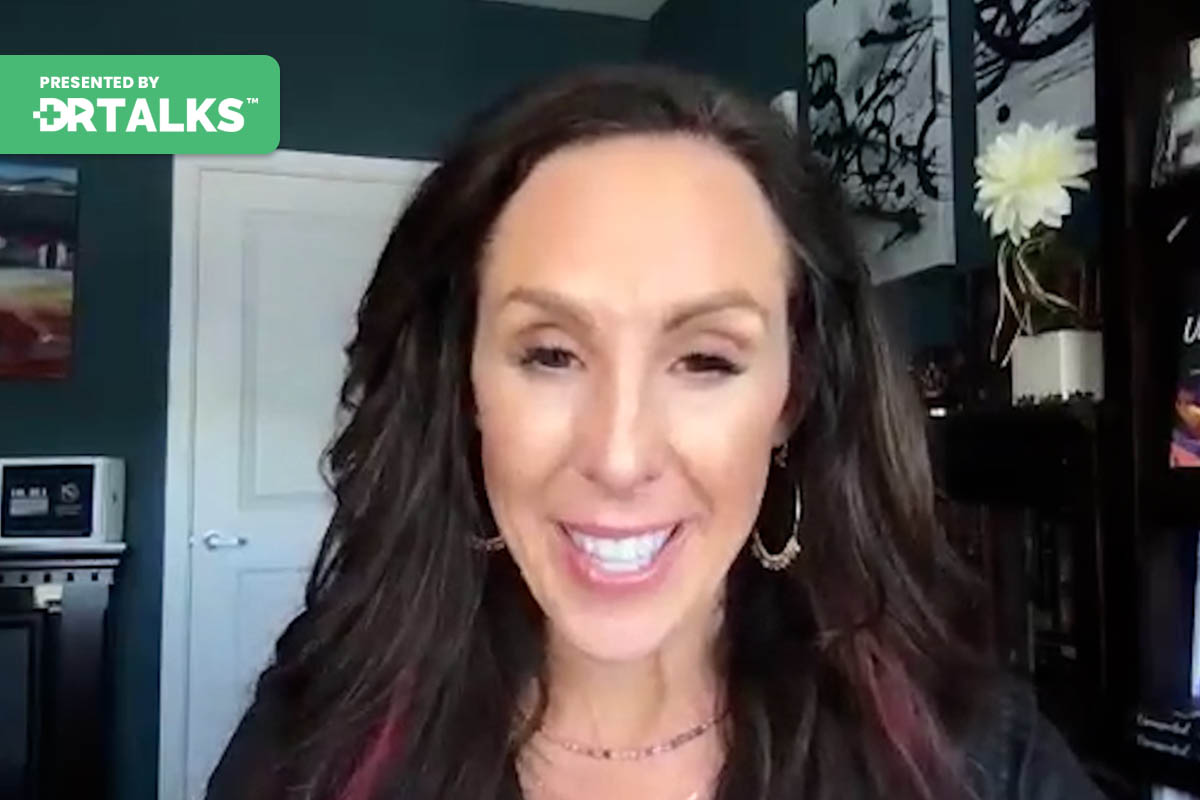

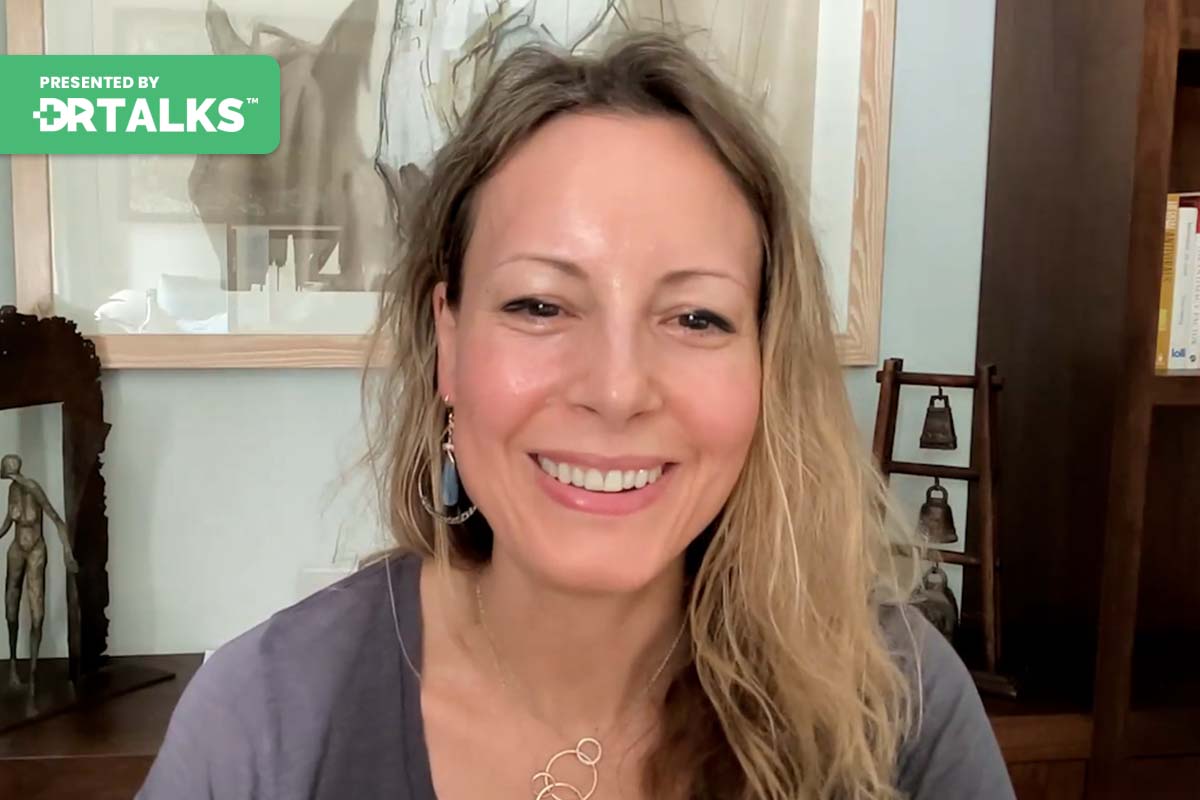
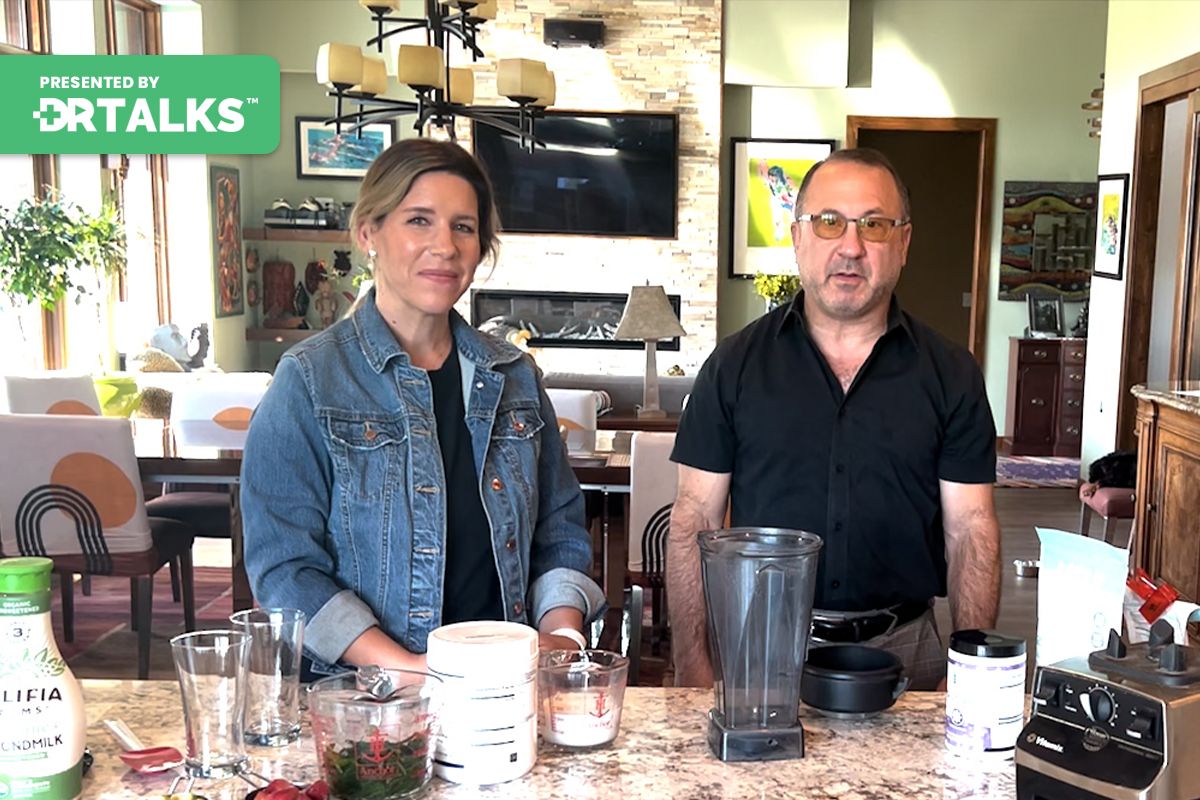
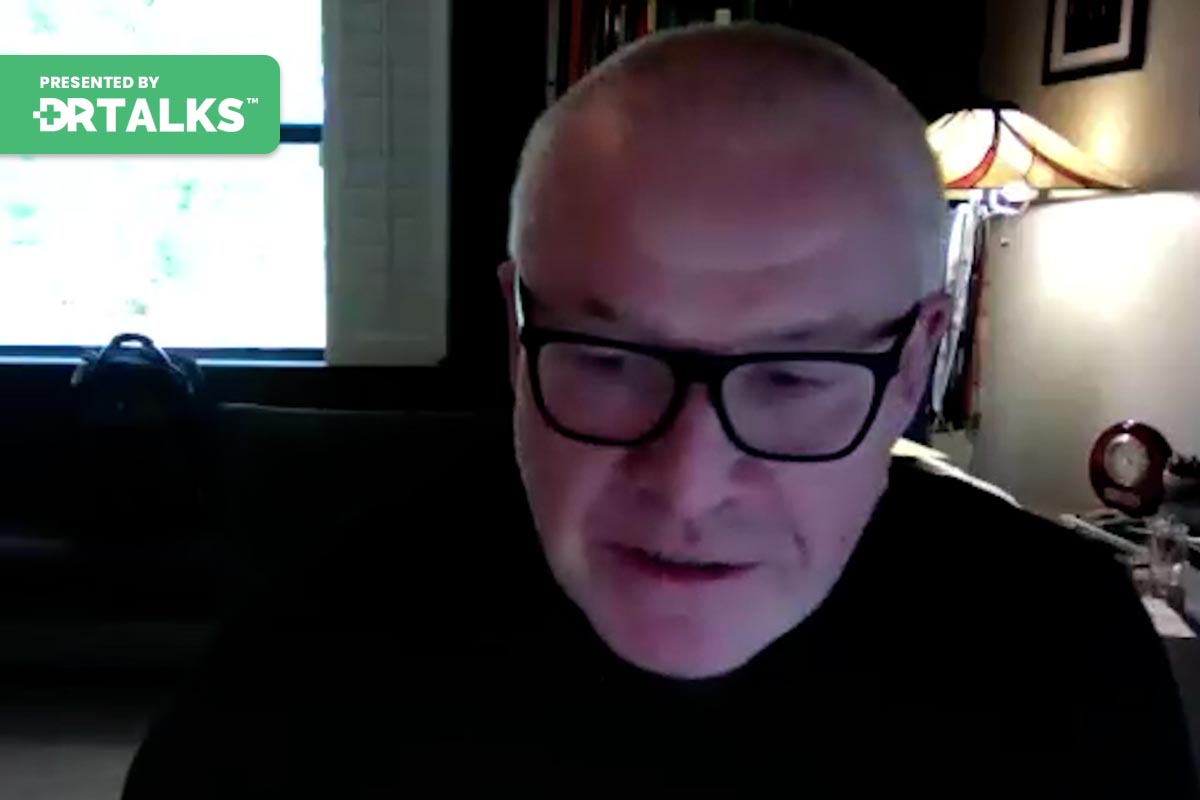
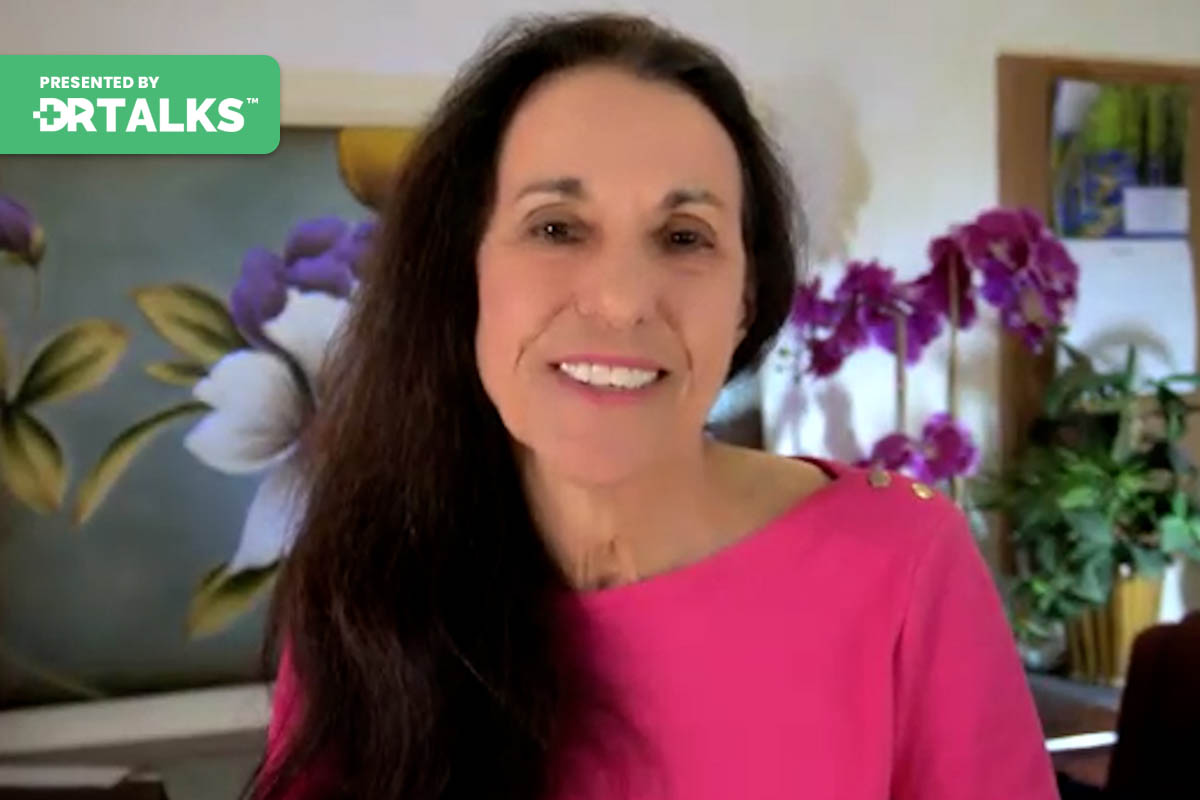
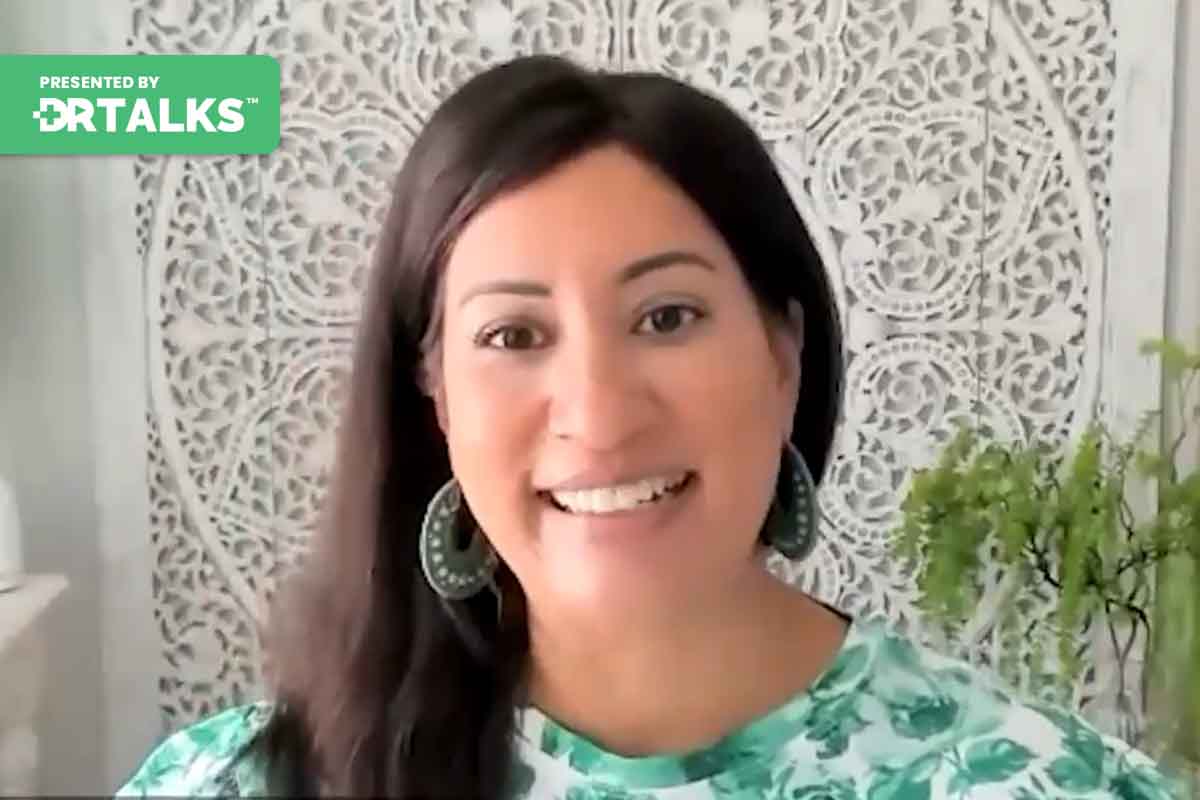
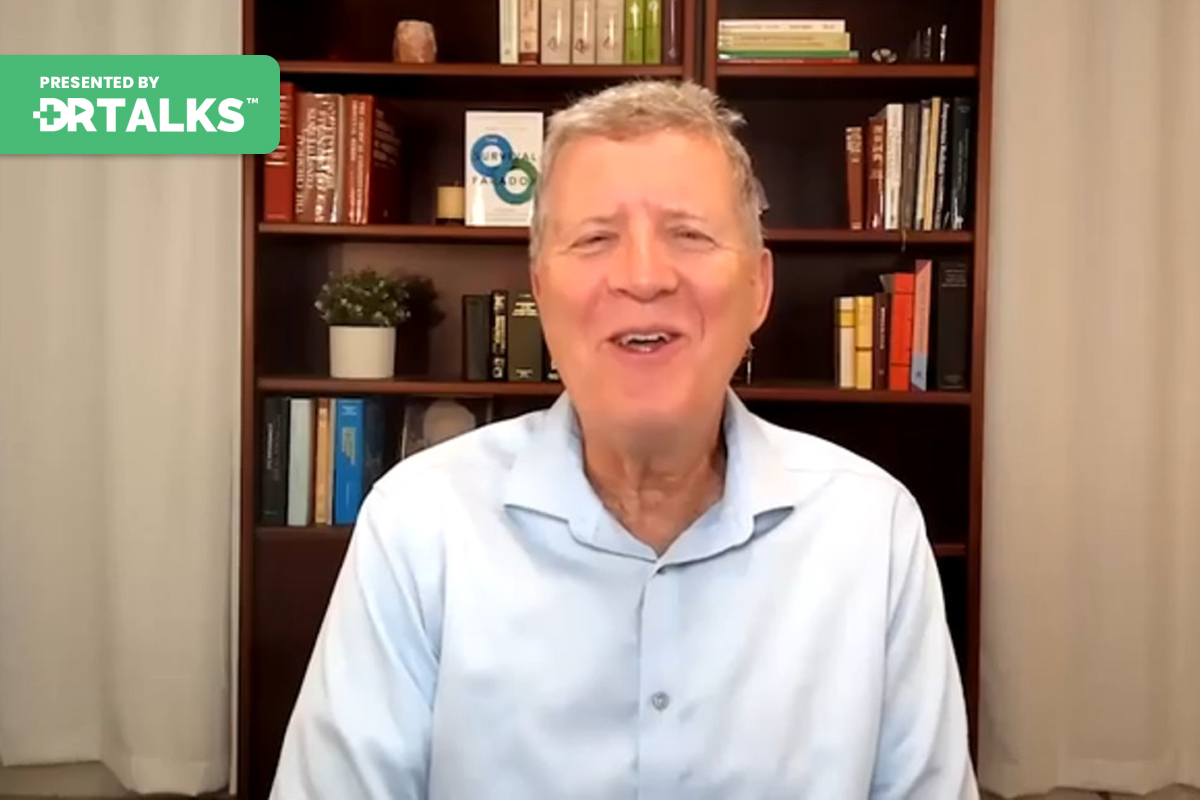


An excellent interview. Although I must say that each interview so far (4 more to go) is a gem by itself. I take away valuable nuggets from every single one of them!
What I have learned is that, in my opinion, Parkinson’s should be re-categorized as post-traumatic stress disorder instead. This is a much better description of what is going on, at least for me, which is a variety of bodily ailments caused by enresolved and festering emotional, environmental, and/or physical stresses. There are so many variables to consider, which makes it so challenging to heal, just like war PTSD.